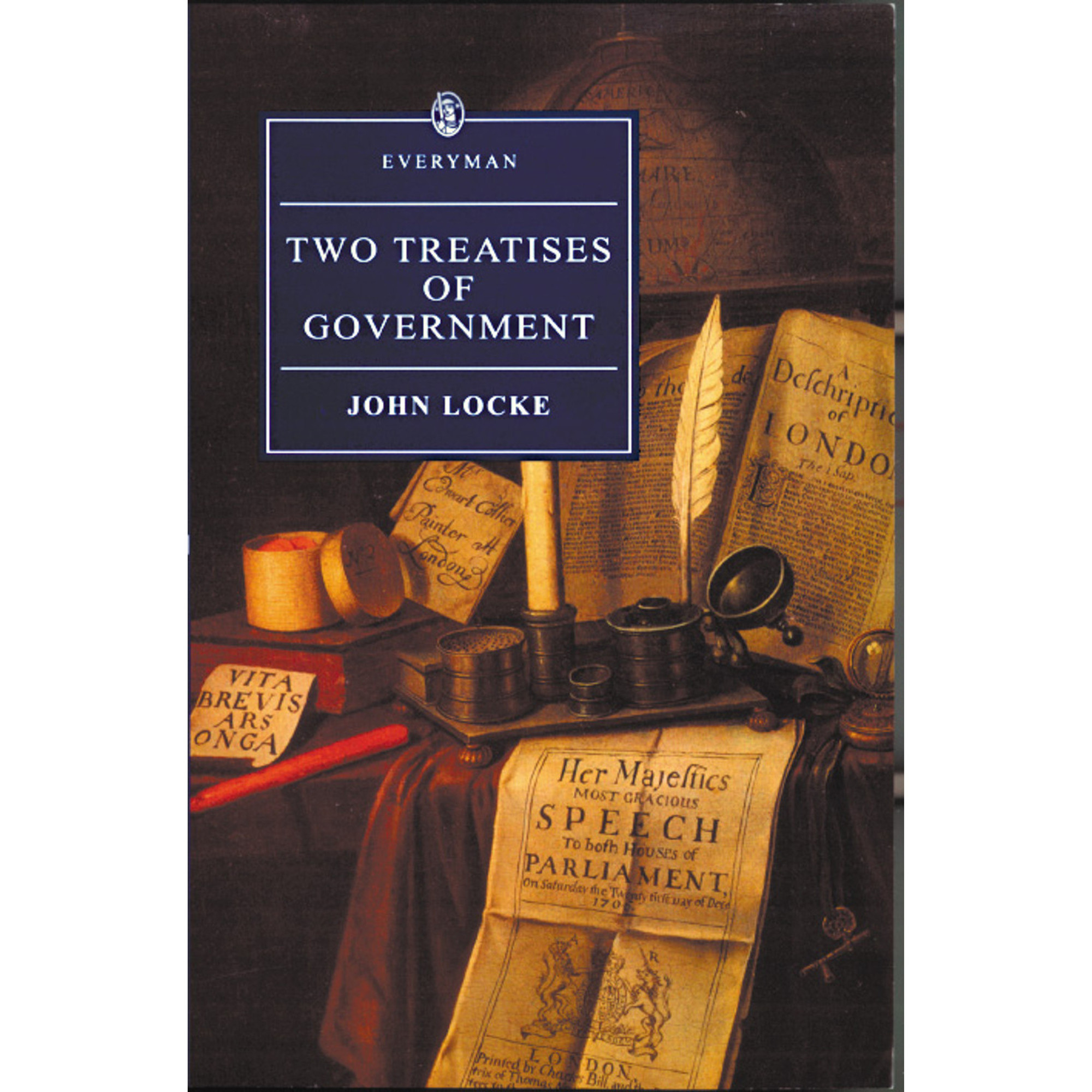Before delving into the nuanced ideas enshrined within “Two Treatises of Government,” it is imperative to unravel the enigmatic figure behind this groundbreaking work—John Locke, an English philosopher whose profound insights profoundly shaped modern notions of political theory and individual liberty. With a deft pen, he challenged the divine right of kings and advocated for natural rights, indelibly etching his name in the annals of philosophy.

Image: www.timetoast.com
The genesis of “Two Treatises of Government” lies in the tumultuous political landscape of 17th century England, marked by the Glorious Revolution that deposed James II and ushered in a paradigm shift in political thought. It was within this maelstrom that Locke penned his treatise, initially an anonymous response to Robert Filmer’s “Patriarcha,” which espoused the divine ordination of absolute monarchy.
Navigating the Labyrinth of Ideas in “Two Treatises of Government”
“Two Treatises of Government” comprises two distinct sections, each tackling different facets of political philosophy. The first treatise confronts the patriarchal theory of government, meticulously dismantling Filmer’s arguments and positing that political power derives not from divine fiat but from the consent of the governed. Locke’s prose reverberates with radicalism, arguing that all individuals are born with certain inalienable natural rights, including life, liberty, and property. These rights, he asserted, exist independently of government and serve as the foundation upon which a just society can be erected.
Venturing into the second treatise, Locke delves into the intricate workings of government, exploring the relationship between the state and the individual. He contends that the primary purpose of government is to preserve and protect the natural rights of its citizens. To achieve this end, he envisions a government founded on the pillars of consent, separation of powers, and the rule of law. Citizens, Locke believed, possess the inherent right to alter or abolish a government that fails to fulfill its fundamental obligations.
Penetrating Insights Resonate Through the Corridors of Time
Locke’s “Two Treatises of Government” ascended as a beacon of political philosophy, its profound influence reverberating across the globe. Its imprint can be discerned in the American Declaration of Independence, with its echoes of Locke’s natural rights and the consent of the governed. The ideals espoused in “Two Treatises of Government” also found fertile ground in the French Revolution, where its principles fueled the burgeoning aspirations of liberté, égalité, et fraternité.
Locke’s vision of a government constrained by the rule of law has left an indelible mark on modern constitutionalism. His ideas continue to resonate in democratic societies worldwide, providing a framework for the protection of individual rights and freedoms. From the halls of the Supreme Court to the bustling streets of protest, Locke’s legacy endures, shaping the trajectory of political thought and inspiring generations to challenge injustice and embrace the ideals of liberty and equality.
Delving Deeper into Locke’s Intellectual Tapestry
The legacy of “Two Treatises of Government” extends far beyond its immediate historical impact. Locke’s profound contributions to philosophy reverberate throughout epistemology and metaphysics, leaving a lasting impression on the landscape of human thought.
In his influential “An Essay Concerning Human Understanding,” Locke grapples with the enigmatic nature of knowledge, pioneering the empiricist tradition that posits all knowledge is derived from sensory experience. This radical departure from traditional rationalist thought challenged the prevailing notion of innate ideas and laid the groundwork for modern scientific inquiry.
Locke also made significant strides in understanding the nature of personal identity. He argued that personal identity resides not in an immutable substance but in a continuous consciousness. This concept of a “self” that endures through time and change has had a profound impact on our understanding of human agency and responsibility.

Image: www.tuttlepublishing.com
Who Wrote The Two Treatises Of Government
Unearthing the Legacy: Unraveling the Impact and Relevance of Locke’s Magnum Opus
Two Treatises of Government discourse